
A Behavioural Science Apprenticeship in 10 Books
Over the long term there are few better ways to improve your behavioural science understanding than reading broadly and deeply. Combining a healthy reading habit with a willingness to roll up your sleeves and get stuck in on real problems is almost a guarantee of rapid progress.
There are now many hundreds of behavioural science and behavioural science-adjacent books to choose from. This is fantastic to begin with: almost every book you come across will spark ideas and introduce new concepts that you can apply in your own work.
But as you progress, a little discernment goes a long way. Popular science books make a great introduction, but there are only so many times you want to have the same concepts (the Prisoner's Dilemma is a big offender) re-explained to you. Similarly, while every year yields a new crop of 'big idea' books from academics, their grand, simplified narratives - 'here's this amazing new science that explains everything' - are not the most helpful for a professional trying to add nuance to their view of human behaviour.
Our recommendations
The books below are some of our recommendations for filling out this middle rung, books that go beyond the basics but still provide more guidance and readability than you get from relying on academic papers alone:
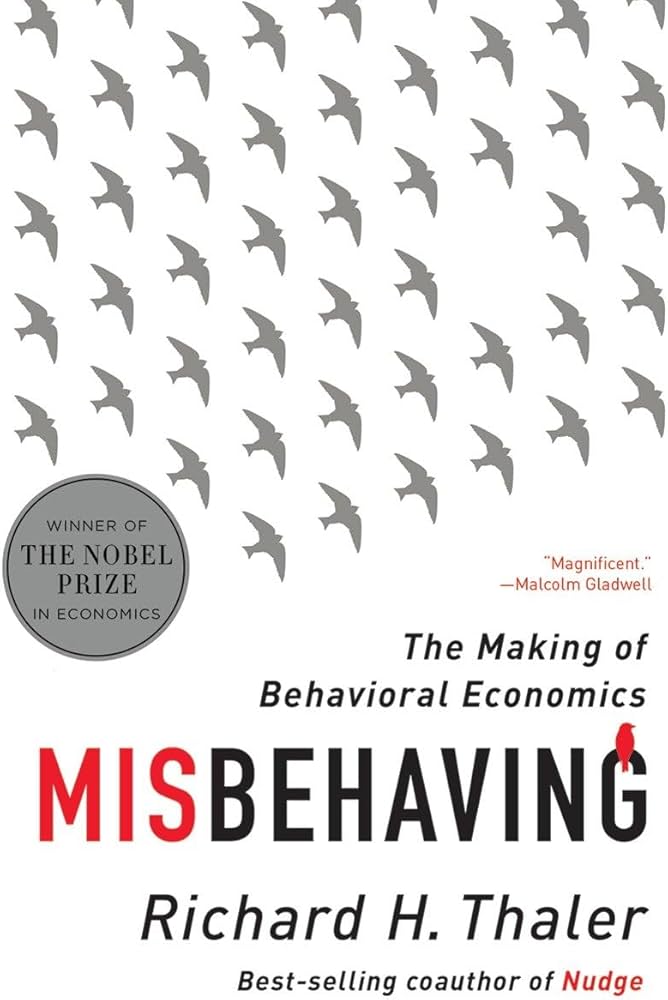
|
Misbehaving. A fun introduction to behavioural economics in general and to Richard Thaler's ideas in particular. Very useful for understanding how behavioural approaches relate to more classical economics, and the evolution of the field from its underdog beginnings to Thaler's 2017 Nobel Prize. |

|
Influence. In 1984, this book introduced Bob Cialdini's six principles of persuasion to the world. These were based on Cialdini's own experience watching and learning from influence professionals - including in unglamorous places (car dealerships, door-to-door salesmen) ignored by most researchers. Cialdini has had many imitators since, many of them mediocre and gimmicky. But there is real insight and scholarship here, and the principles are a reliable tool worth memorising. |
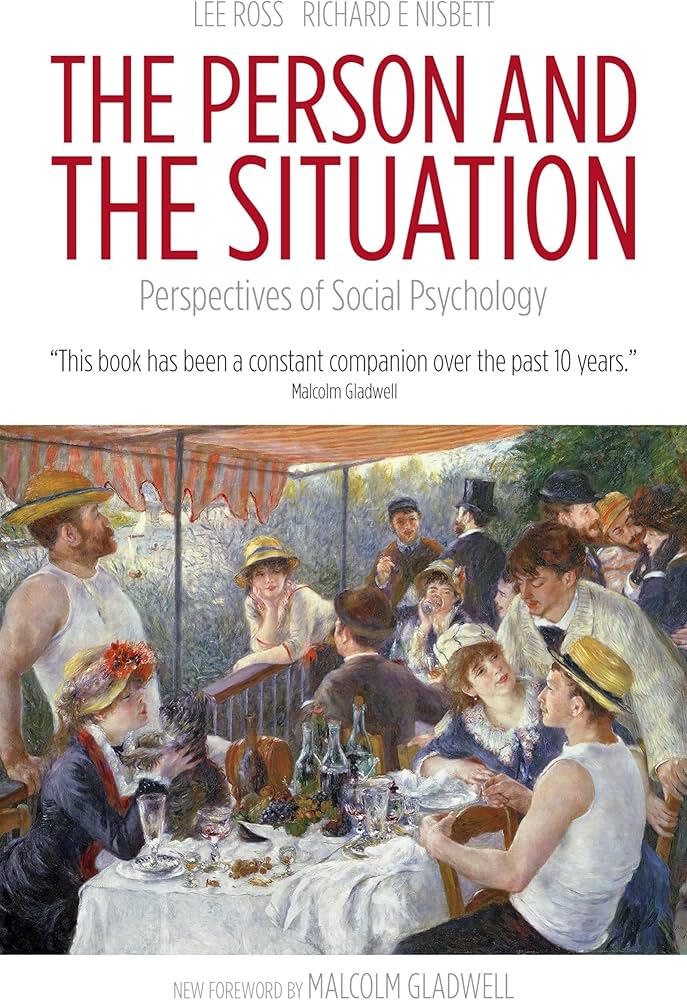
|
The Person and the Situation. A great starting point on social psychology, and the core ideas have withstood the replication crisis: situational factors are potent and easily overlooked; what matters is not the 'objective' situation but how it is construed; individual and group behaviour are systems in tension. |
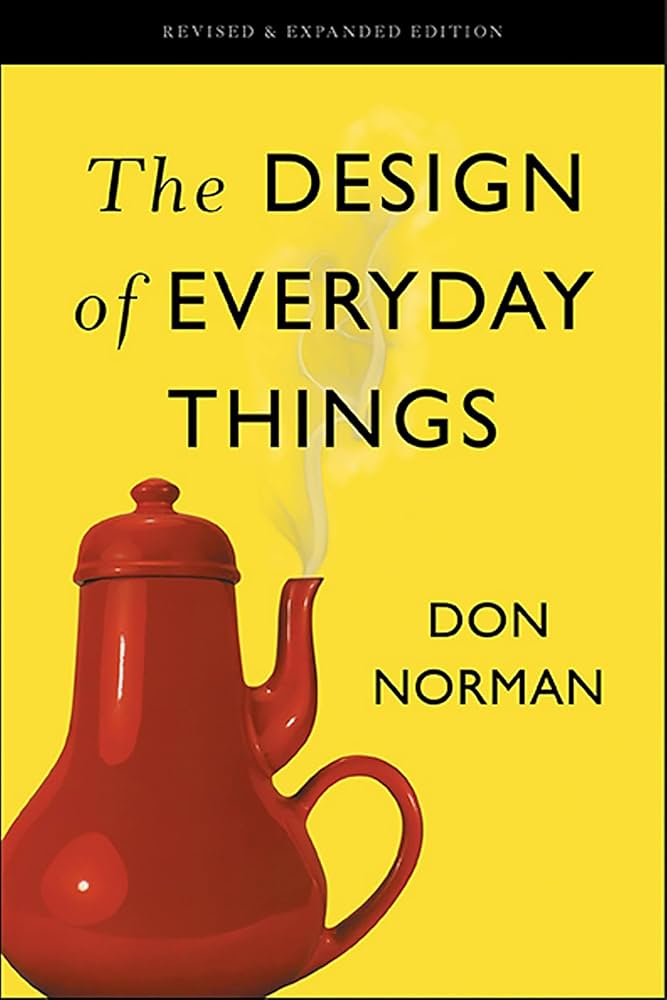
|
The Design of Everyday Things. The rare book about design that is light on platitudes and heavy on detail. Very useful taxonomies of errors (mistakes vs. slips), and full of psychological insight. Blame stupid environments, not stupid people. |
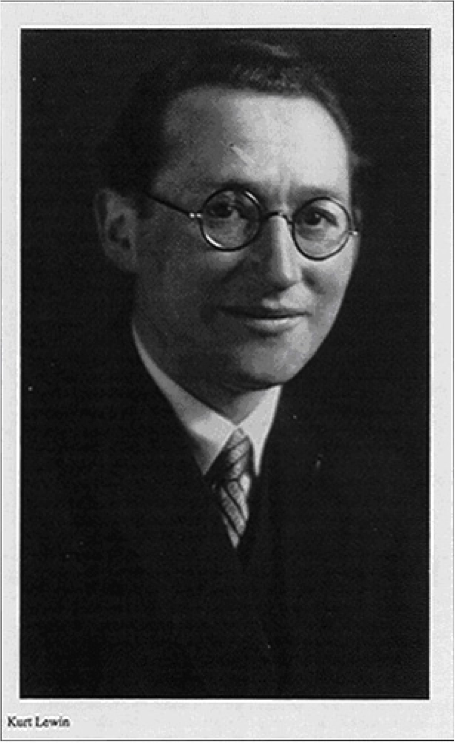
|
Kurt Lewin's Field Theory in Social Science and Principles of Topographical Psychology. Somewhat esoteric, but field theory remains the best organising framework for thinking about behaviour. Of someone whose behaviour you want to change, don't ask "How can I get them to move?", but instead ask "Why aren't they moving already?". |

|
The New Psychology of Leadership. Serves as a very helpful introduction to social identity theory, which has many applications beyond leadership. To succeed leaders need to 'be one of us', to be 'doing it for us', to 'craft a sense of us', and to 'make us matter'. |
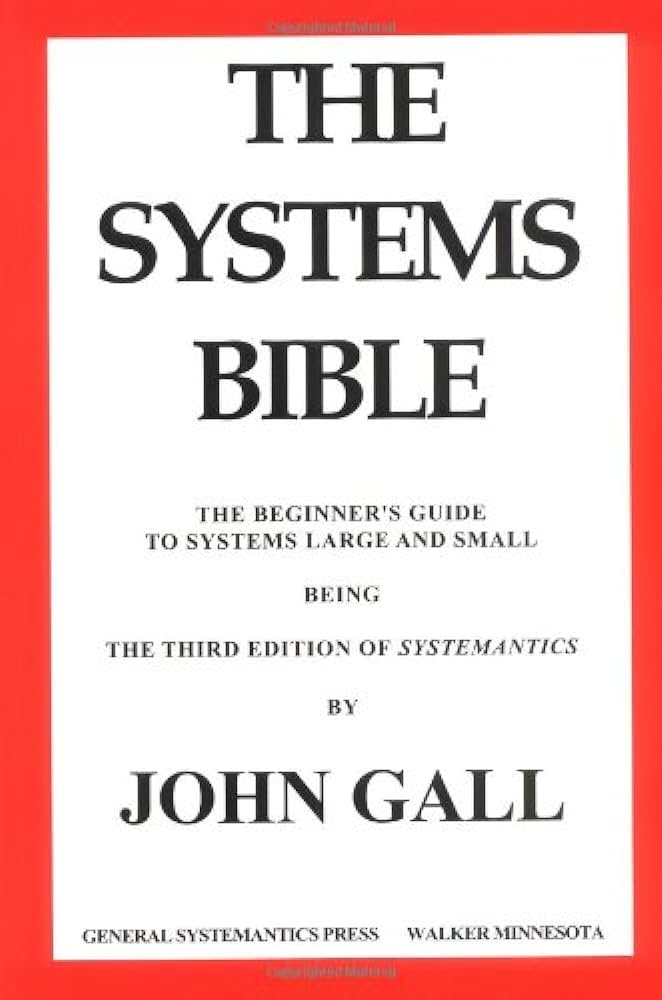
|
Systemantics, aka the Systems Bible. Systems, particularly large ones, tend to go wrong. Attempts to fix them tend to make things worse. Becoming a student of systemantics will make you a superforecaster when it comes to major government reforms, new IT systems, and so on. (Hint: predict failure). |
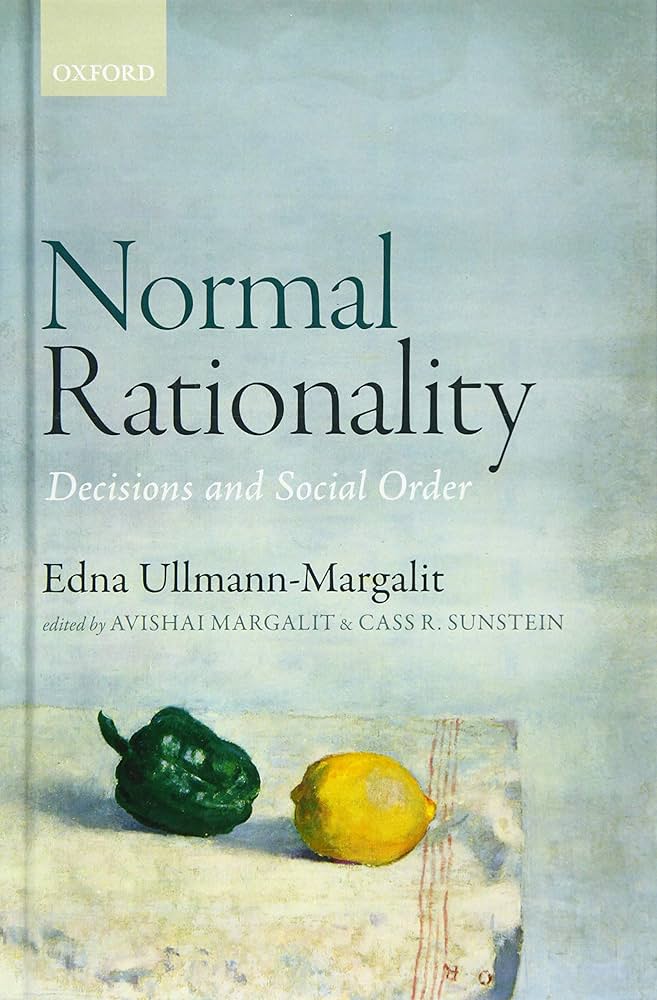
|
Normal Rationality. Edna Ullman-Margalit remains underrated as a decision theorist. Many decisions are too small (which exact can of soup to pick up in the supermarket) or too large (whether to have a child) for our normal analytical tools. This volume fleshes out a helpful taxonomy - picking vs. choosing; opting, converting, drifting; second-order decisions - for making sense of them. |
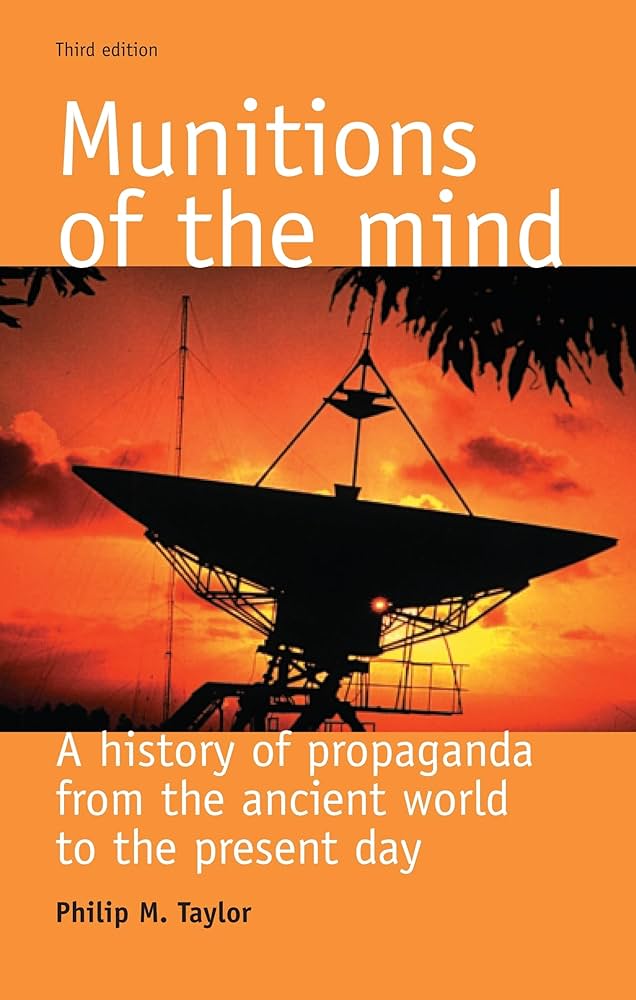
|
Munitions of the Mind. Is behavioural science the same as propaganda? Whatever your answer, it's wise to ground it in an understanding of what propaganda is, how it works and how far its roots go back (a very long way). Many of the case studies are a reminder of what a maximalist approach to attitude and behaviour change looks like: when the UK was fighting World War I, for example, it didn't just rely on the odd poster and clever nudge but on songs, pamphlets, marches, extensive news censorship, plays, radio and anything else going. |

|
The Lady Tasting Tea. A readable account of statistics and the methodological foundations - most notably randomised controlled trials - that modern behavioural science is built on. |
Bonus: Public-sector-specific
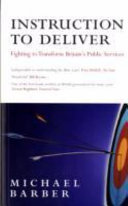
|
Instruction to Deliver. Michael Barber's account of getting stuff done in government and 'deliverology', particularly focused on the Blair administration in the UK. A useful reference on what it takes to get stuff done in any bureaucratic setting (persistence, guile, more persistence). |
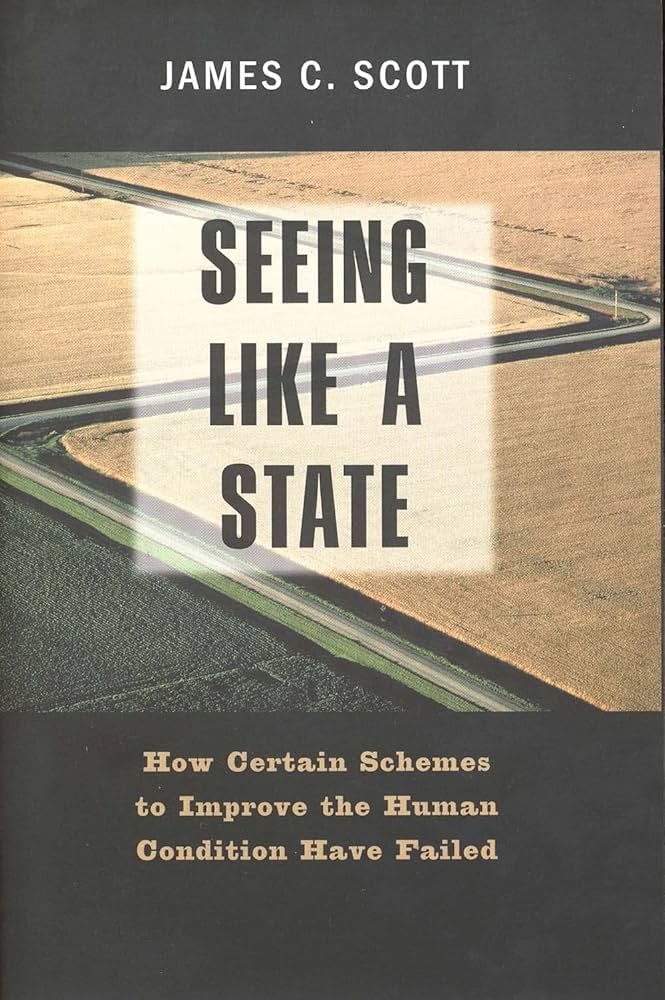
|
Seeing Like A State. Behavioural science naturally lends itself to an interventionist and somewhat technocratic view of the state: social problems exist and a state should use its superior knowledge, rationality and resources to solve them. Scott articulates a different view, cataloguing the disasters that can arise when 'authoritarian high modernism' goes too far. A must-read for anyone trying to place the behavioural-science-in-government project in its larger context. |

|
The Utopia of Rules. A strength of the 'nudge' agenda in government should be its appeal across partisan and ideological lines. This point can get lost in environments where most of its advocates and practitioners share a similar political perspective. As an anthropologist and anarchist, Graeber comes from quite a different tradition. But this book - an account of how harmful the complexity of a modern bureaucracy can be for the humans who have to use it - is as strong an argument as any for that core behavioural science dictum, 'Make It Easy'. |
Bonus: Private-sector-specific

|
Poor Charlie’s Almanack: The Essential Wit and Wisdom of Charles T. Munger. Charlie Munger was Warren Buffett's partner in building Berkshire Hathaway into the world's most successful investment firm. He credits much of his success to using "the psychology of misjudgment" to avoid simple errors. This book is the best collection of his thinking, including his list of twenty-five key psychological tendencies, the business errors they give rise to, and some possible antidotes. |
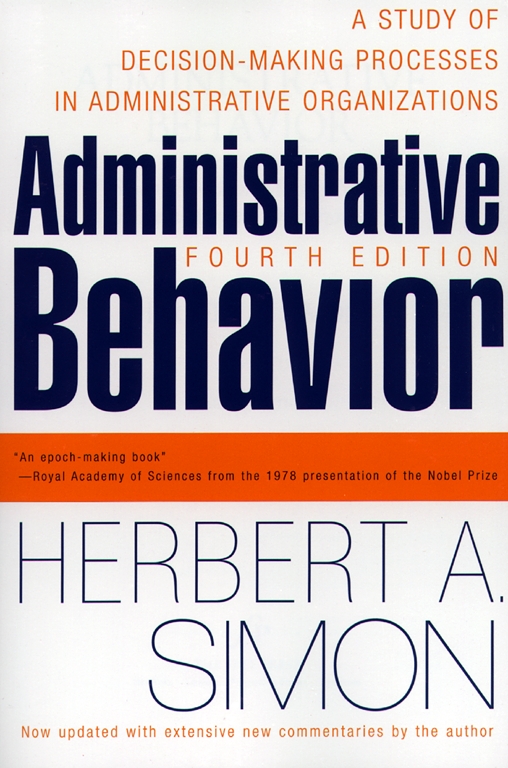
|
Administrative Behaviour. Foundational work in organisational behaviour that introduced the idea that individuals and organizations don't optimize, they 'satisfice' - making decisions that are good enough rather than perfect. |
If these books have sparked your interest and you've got ideas for applying behavioural science in your organisation, we'd love to hear about them. Schedule a brief intro call with us.